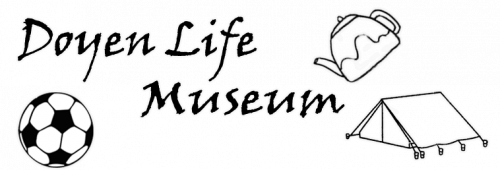Tennis psychology is nothing more than understanding the workings ofyour opponent's mind, and gauging the effect of your own game on hismental viewpoint, and understanding the mental effects resulting from thevarious extemal causes on your own mind. You cannot be a successfulpsychologist of others without first understanding your own mentalprocesses, you must study the effect on yourself of the same happeningunder different circumstances. You react differently in different moods andunder different conditions. You must realize the effect on your game of theresulting imitation, pleasure, confusion, or whatever form your reactiontakes. Does it increase your efficiency? If so, strive for it, but never give itDoes it deprive you of concentration? If so, either remove the cause, orif that is not possible strive to ignore it.Once you have judged accurately your own reaction to conditions,study your opponents, to decide their temperaments. Like temperamentsreact similarly, and you may judge men of your own type by yourselfOpposite temperaments you must seek to compare with people whoseeactions you knowA person who can control his own mental processes stands anexcellent chance of reading those of another. for the human mind worksalong definite lines of thought, and can be studied. One can only controlone's, mental processes after carefully study ing themA steady phlegmatic baseline player is seldom a keen thinker. If hewas he would not adhere to the baselineThe physical appearance of a man is usually a pretty clear index to histype of mind. The stolid, easy-going man, who usually advocates thebaseline game, does so because he hates to stir up his torpid mind to thinkout a safe method of reaching the net. There is the other type of baselineplayer, who prefers to remain on the back of the court while directing anattack intended to break up your game. He is a very dangerous player, anda deep, keen- thinking antagonist. He achieves his results by mixing up hislength and direction, and worrying you with the variety of his game. He isa good psychologist. Such players include J. C. Parke, Wallace F. Johnson,and Charles S Garland. The first type of player mentioned merely hits theball with Ittle idea of what he is doing while the latter always has adefinite plan and adheres to it. The hard-hitting, erratic, net-rushing playeris a creature of impulse. There is no real system to his attack, nounderstanding of your game. He will make brilliant coups on the spur ofthe moment, largely by instinct, but there is no, mental power of consistentthinking. It is an nteresting, fascinating type. Such men as HaroldThrockmorton, B I C. Norton, and at times N. williams, are examplesalthough Williams is really a better psychologist than this sounds

The dangerous man is the player who mixes his style from back to forecourt at the direction of an ever-alert mind. This is the man to study andlearn from. He is a player with a definite purpose. a player who has ananswer to every query you propound him in your game. He is the mostsubtle antagonist in the world. He is of the school of Brookes. Second onlyto him is the man of dogged determination that sets his mind on one planand adheres to it, bitterly, fiercely fighting to the end, with never a thoughtof change. He is the man whose psychology is easy to understand, butwhose mental viewpoint is hard to upset, for he never allows himself tothink of anything except the business at hand. This man is your Johnstonor your Wilding. I respect the mental capacity of Brookes more, but Imire the tenacity of purpose of JohnstonPick out your type from your own mental processes, and then work outyour game along the lines best suited to you. Few of us have the mentalbrilliance of Brookes; but all can acquire the dogged determination ofJohnston, even if we have not his tennis abilityWhen two men are, in the same class, as regards stroke equipment, thedetermining factor in any given match is the mental viewpoint. Luck, so-called, is often grasping the psychological value of a break in the game.and turning it to your own accountWe hear a great deal about the " shots we have made."Few realize theimportance of the"shots we have missed. The science of missing shots isas important as that of making them, and at times a miss by an inch is ofmore value than a, return that is killed by your opponent.
Let me explain. A player drives you far out of court with an angle-shotYou run hard to it, and reaching, drive it hard and fast down the side-linemissing it by an inch. Your opponent is surprised and shaken, realizingthat your shot might as well have gone in as out He will expect you to tryIt again, and will not take the risk next time. He will try to play the balland may fall mto error. You have thus taken some of your opponent'sconfidence and increased his chance of error. all by a miss.If you had merely popped back that retum, and it had been killed, youropponent would have felt increasingly confident of your inability to getthe ball out of his reach, while you would merely have been windedwithout resultLet us suppose you made the shot down the sideline. It was aseemingly impossible get. First it amounts to Two points in that it tookone away from your opponent that should have been his and gave you oneyou ought never to have had. It also worries your opponent, as he feels hehas thrown away a big chanceThe psychology of a tennis match is very interesting, but easilyunderstandable. Both men start with equal chances. Once one manestablishes a real lead, his confidence goes up, while his opponent woresand his mental viewpoint becomes poor. The sole object of the first man isto hold his lead, thus holding his confidence. If the second player pullseven or draws ahead, the inevitable reaction occurs with even a greatercontrast in psychology. There is the natural confidence of the leader nowith the second man as well as that great stimulus of having tumedseeming defeat into probable victory. The reverse in the case of the firstplayer is apt to hopelessly destroy his game, and collapse followsIt is this twist in tennis psychology that makes it possible to win somany matches after they are seemingly lost. This is also the reason that aman who has lost a substantial lead seldom tums in the ultimate victoryHe cannot rise abote the depression caused by his temporary slump. Thevalue of an early lead cannot be overestimated It is the ability to controlyour mental processes, and not worry unduly over early reverses, thatmakes a great match player
